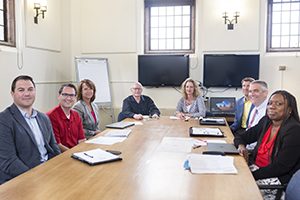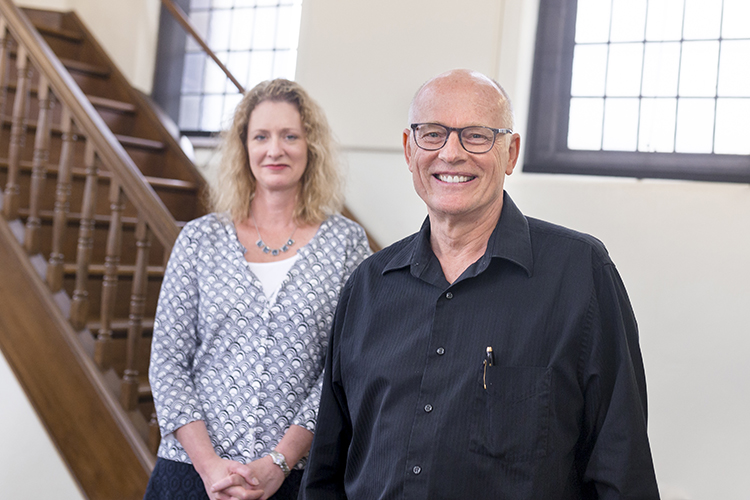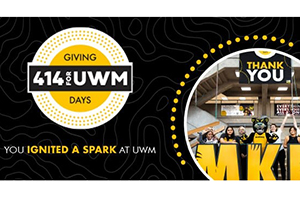A university project aimed at improving how core business and IT services are delivered is moving forward with the establishment of a prototype support services center, or “hub.”
This first hub will support the School of Education, the College of Health Sciences, the College of Nursing, the Zilber School of Public Health, the Helen Bader School of Social Welfare and the Division of Finance & Administrative Affairs.
The project, known as Integrated Support Services, rethinks how UWM provides services involving finance and accounting, procurement, human resources and information technology. Currently, those functions are decentralized, with much of the work performed by staff in departments across campus. The degree to which schools, colleges, divisions, and departments utilize local business and IT support staff to facilitate work with the central offices varies greatly. Provost Johannes Britz and Vice Chancellor for Finance & Administrative Affairs Robin Van Harpen are the executive sponsors of the project.
The ISS project will organize those administrative services into hubs, with the intention of providing better service and more efficient use of resources. Each hub will provide human resources, finance and purchasing services to its assigned colleges and units.

IT will operate somewhat differently. Services like desktop and classroom support will be organized within an IT department in the new Integrated Support Services structure.
“This is critical work for UWM as we transform how we provide services to be more effective and efficient,” Chancellor Mark Mone said. “It’s also challenging work — change can be difficult, and transitions like this can bring obstacles. It’s crucial for our campus to make this transition, and it has my full support as we move forward. This work is important, valued and needed because it underlies all that we do — enabling success with students, research and the broader community.”
While the ISS project is expected to reduce costs through simplification and standardization, it is not intended as a means of budget cutting. Rather, more efficient and effective processes will reduce the administrative burden on academic leadership, faculty and staff, allowing them to focus on education and research.
Project leaders expect several benefits for employees, including:
- Clearer career paths
- More appropriate salary structures
- Better communication by means of a clearer organizational structure
- Enhanced professional development opportunities
- Role clarity
The hubs intentionally mix academic and administrative units to facilitate the sharing of expertise and more evenly distribute workflow across those units. The goal is to have the prototype hub up and running by early 2018. Two more hubs to support the rest of the university will be set up later, taking into account the lessons learned from the prototype.
Planning for the project began in 2015. More than 100 employees from 40 departments have been involved in the planning process.
Similar shared service models are in place at many other universities, including the University of Kansas, the University of Michigan and Yale University.
For more information about the project, check out the frequently asked questions portion of the ISS website. Anyone with questions is invited to contact project organizers through an online form on the ISS website.







